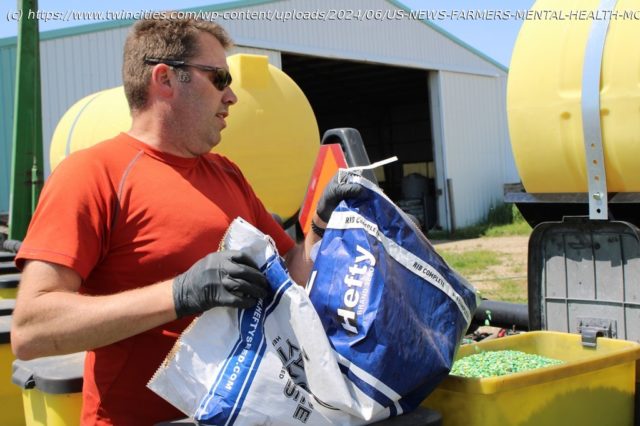Studies have concluded that suicide is unusually common among farmers. Researchers believe it’s not just because many farmers have other risk factors, such as rural addresses and access to guns.
Tony Leys | (TNS) KFF Health News
If you or someone you know may be experiencing a mental health crisis, contact the 988 Suicide & Crisis Lifeline by dialing “988,” or the Crisis Text Line by texting “HOME” to 741741.
____
GRINNELL, Iowa — The farmers’ co-op here is a center of hope every spring. It’s where farmers buy seed and fertilizer for the summer’s crops, and where they seek tips to maximize their harvest of corn and soybeans.
But on a recent morning, a dozen mental health professionals gathered at the Key Cooperative Agronomy Center to discuss why so many farmers quietly struggle with untreated anxiety and depression.
Studies have concluded that suicide is unusually common among farmers. Researchers believe it’s not just because many farmers have other risk factors, such as rural addresses and access to guns.
The tragic trend has caught the attention of the U.S. Department of Agriculture, which sponsors training sessions like the one in Grinnell to help health care professionals learn how to talk to farmers about the pressures they face in wringing a living out of the land.
“A lot of them are born to it. They don’t have any choice,” family therapist David Brown explained to the session’s participants. He noted many farms have been passed down for generations. Current owners feel that if they fail, they would be letting down their grandparents, parents, children, and grandchildren.
Brown, who works for Iowa State University Extension and Outreach, led the training in Grinnell. He said farmers’ fate hinges on factors out of their control. Will the weather be favorable? Will world events cause prices to soar or crash? Will political conflicts spark changes in federal agricultural support programs? Will a farmer suffer an injury or illness that makes them unable to perform critical chores?
Brown said surveys show many farmers are reluctant to seek mental health care, partly because they think therapists or doctors couldn’t understand their lives.
Tina Recker, a mental health therapist in northeastern Iowa, attended the training session. She has lived on farms, and she has seen how the profession can become a person’s entire identity. “It’s just farm, farm, farm, farm,” she told the group. “If something goes wrong with it, that’s your whole world.”
It’s difficult to estimate how much of farmers’ increased risk of suicide is due to their profession.
Домой
United States
USA — mix Therapists learn how to help farmers cope with stress before it’s too...






